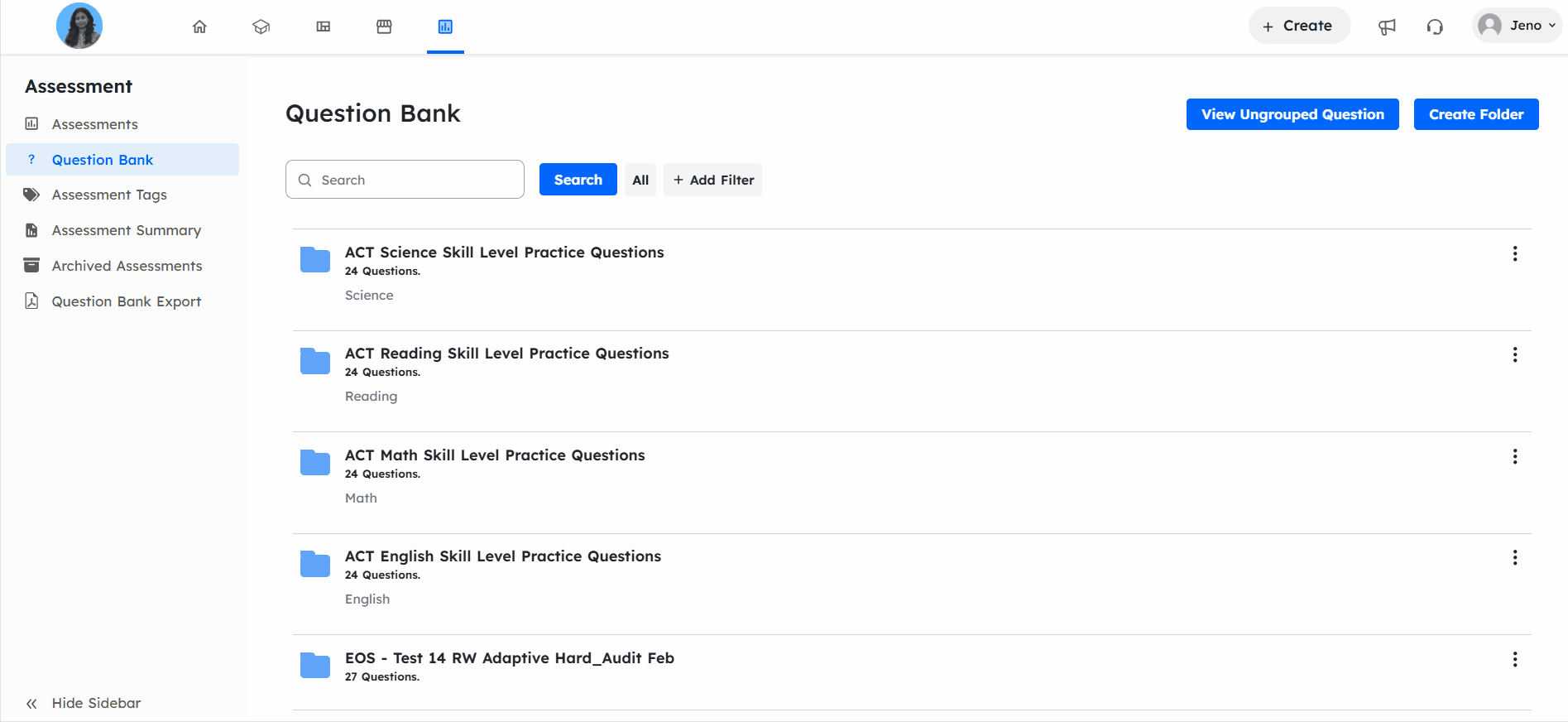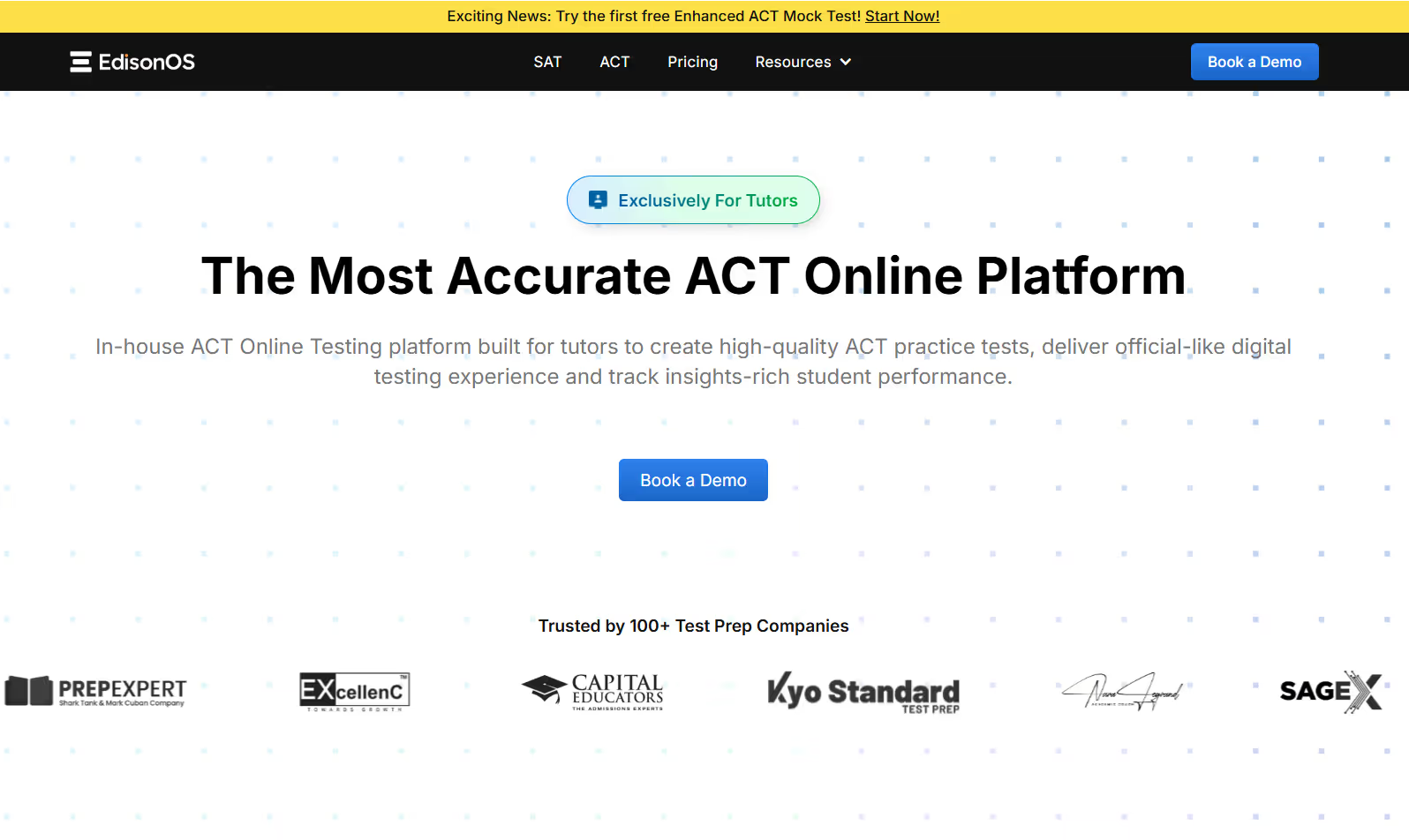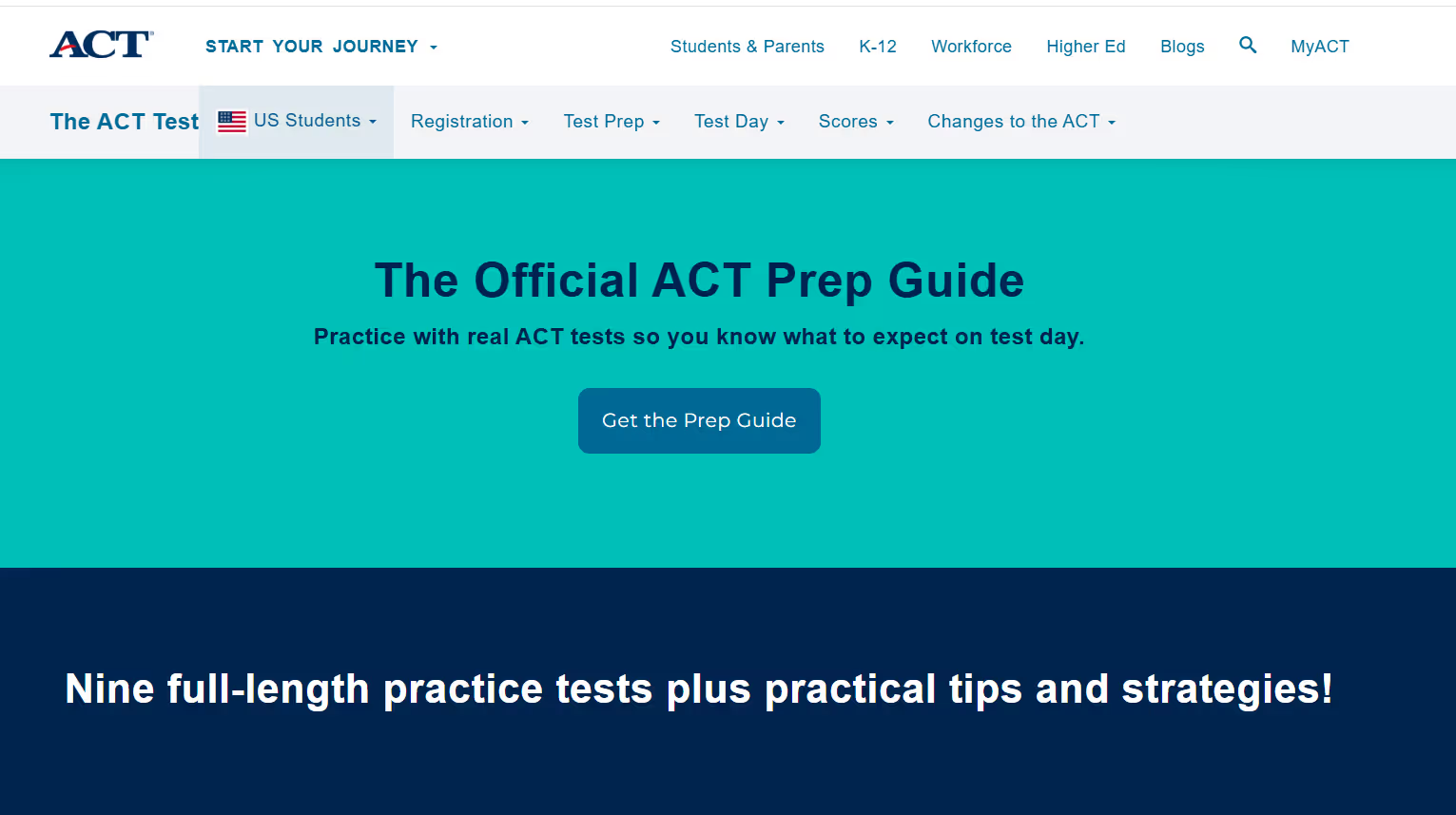




Key Takeaways
- A structured ACT plan reduces stress and boosts student confidence.
- Weekly schedules balance review, practice, and strategy for steady improvement.
- Progress tracking tools help tutors personalize prep and fix weak spots efficiently.
Helping students navigate the road to ACT success is no small task. As a tutor, you’re not just teaching—you’re also building confidence, shaping strategies, and guiding them through one of the most important tests of their academic journey.
That’s why having a structured yet flexible ACT study plan is essential. It’s not just about covering every topic, but tailoring the plan to fit each student’s pace, strengths, and challenges.
An effective ACT study plan considers multiple factors: diagnostic results, individual learning styles, available preparation time, and score goals. It also includes a balanced mix of subject review, practice tests, and progress tracking.
In this guide, we’ll explain how to build a solid ACT study plan for tutors like you from scratch, offer strategies to keep students motivated, and share tips for adapting your plan to different learning needs.
Why Does a Structured ACT Study Plan Matter for Students?
A well-organized ACT study plan promotes consistent learning, reduces stress, and ensures no topic is left behind. For tutors like you, using a weekly ACT study schedule brings clarity and focus to each learning session, making every hour of preparation count.
Here’s why a structured plan matters so much:
1. Reduces Overwhelm
Students often feel anxious when faced with the vast amount of material on the ACT. A structured plan breaks down the syllabus into manageable parts, allowing students to tackle one topic at a time. This not only eases mental pressure but also boosts their confidence as they check off small wins along the way.
2. Improves Time Management and Score Confidence
A weekly ACT study schedule allows students to spread their preparation evenly, avoiding burnout and last-minute panic. It teaches them to prioritize their weakest areas while maintaining steady practice in stronger subjects.
For example, dedicating Mondays to Math review and Thursdays to English drills ensures a balanced routine and improves performance over time. Consistent practice across all sections of the digital ACT builds confidence and competence gradually.
3. Helps Tutors Like You Track Student Progress
With a clear schedule in place, tutors like you can easily monitor how students are progressing through the material. It helps identify areas where students are excelling or falling behind, allowing timely adjustments to the plan. This data-driven approach enhances accountability and ensures every tutoring session is purposeful.
ACT Prep Timeline: Assessing Student Baseline
A well-designed ACT study plan starts with assessing the student's current skill level and understanding how much time they have before test day. By combining diagnostic results with a clear ACT prep timeline, tutors can personalize the weekly ACT study schedule to match the student’s needs and goals.
Here's how you can set a strong foundation:
1. Initial ACT Diagnostic Test
The first step is to administer a full-length, timed ACT online practice test. This provides a realistic snapshot of the student’s current abilities across English, Math, Reading, and Science sections.
It’s important that the diagnostic mimics official test conditions to get the most accurate results. This baseline score acts as a starting point to measure improvement and fine-tune the study approach.
2. Mapping Strengths and Weaknesses
After analyzing the diagnostic results, map out where the student shines and where they need serious improvement.
Create a simple table like this one to visualize the data:
ACT Study Plan Templates: 4, 8, and 12-Week Weekly Roadmaps for Tutors
Every student’s ACT prep timeline is different and, as a tutor, it’s your job to make each week count. Whether your student has one month or three months to prepare, having a clear weekly ACT study schedule keeps learning on track and avoids last-minute panic.
With the shift to a digital ACT format, it's even more important to ensure students are comfortable with the online test environment while mastering the core subjects.
In subsequent sections, you'll find structured 4-week, 8-week, and 12-week study plan templates. Each plan breaks down what to focus on weekly in English, Math, Reading, and Science to ensure balanced and effective preparation.
4-Week ACT Study Plan (For Last-Minute Prep)
Ideal for: Students with solid foundations needing review and test strategy
Weekly Hours: 8–12 hours
Week 1
- English: Review grammar rules (punctuation, sentence structure)
- Math: Focus on algebra and number operations
- Reading: Practice 1 full reading section; introduce skimming techniques
- Science: Go over data representation questions
Week 2
- English: Sentence clarity and rhetorical questions
- Math: Geometry basics and formulas
- Reading: Time-based practice sets
- Science: Research summaries and graph reading
Week 3
- English: Timed section drills
- Math: Tricky word problems + functions
- Reading: Focus on the main idea and detail questions
- Science: Conflicting viewpoints
Week 4
- All Subjects: Full-length timed ACT + review mistakes
- English & Math: Light revision of weak areas
- Reading & Science: Strategy and pacing practice
8-Week ACT Study Plan (Balanced Prep)
Ideal for: Students needing content refresh and confidence building
Weekly Hours: 6–8 hours
Week 1–2
- English: Basic grammar + punctuation
- Math: Algebra and pre-algebra concepts
- Reading: Understanding passage types
- Science: Interpreting graphs and charts
Week 3–4
- English: Sentence strategy, transitions, and tone
- Math: Geometry + coordinate plane questions
- Reading: Time management drills
- Science: Data analysis and scientific summaries
Week 5–6
- English: Practice full sections under time
- Math: Advanced topics (probability, functions)
- Reading: Inference and comparison practice
- Science: Scientific method questions
Week 7–8
- All Subjects: Take 1–2 full-length tests
- Review: Go over test mistakes and revise strategy
- Focus: Strengthen weaker areas
12-Week ACT Study Plan (Comprehensive Prep)
Ideal for: Students who need in-depth review and gradual improvement
Weekly Hours: 4–6 hours
Week 1–3
- English: Deep dive into grammar rules and usage
- Math: Foundations—fractions, algebra, word problems
- Reading: Reading comprehension strategies
- Science: Basic data and variable understanding
Week 4–6
- English: Rhetorical skills, transitions, and tone
- Math: Geometry, ratios, coordinate plane
- Reading: Practice with fiction and nonfiction passages
- Science: Research summaries, graph analysis
Week 7–9
- English: Timed sections, strategy drills
- Math: Focus on functions, probability, and review tricky topics
- Reading: Speed reading and comprehension drills
- Science: Conflicting viewpoints and experiment design
Week 10–12
- All Subjects: 2 full-length practice tests
- Focus: Mistake tracking and revision
- Final Touches: Light review, test-day strategies, and confidence building
A Weekly ACT Study Schedule Structure
You need to ensure that students get a mix of content review, practice tests, and rest days to maximize retention and avoid burnout. A well-structured weekly ACT study schedule helps students stay on track while allowing flexibility for adjustments.
Additionally, as students progress, regularly referencing the ACT scoring chart can help them understand how their practice test scores translate into actual results, providing motivation and insights for improvement.
Here’s how to structure the study plan for optimal results:
Content Review vs. Practice Test Balance
A strong weekly ACT study schedule should balance content review and practice tests. Too many reviews without testing leads to overconfidence, while too many tests without review can leave knowledge gaps unaddressed. Here’s a recommended approach:
- 50% Content Review: Focus on strengthening weak areas in English, Math, Reading, and Science. Use targeted lessons, practice questions, and review notes.
- 40% Practice Tests: Assign timed section drills and at least one full-length test every two weeks to build endurance and accuracy.
- 10% Strategy & Reflection: Go over missed questions, refine test-taking techniques, and adjust study plans based on performance.
💡 Pro Tip: If a student struggles with Science reasoning but excels in Math, dedicate more review time to Science while keeping Math sharp with periodic practice sets.
Use of Tools like EdisonOS to Track Progress
Tracking student progress is key to adjusting study strategies and ensuring consistent improvement. Several tools can help tutors monitor scores, identify patterns, and personalize learning:
- EdisonOS: A powerful platform for tutors that tracks student performance, identifies weak areas, and provides AI-driven insights for adaptive learning

- Khan Academy: Offers free ACT prep materials, interactive problem-solving exercises, and video explanations

- Google Sheets or Excel: Simple but effective for logging test scores, tracking progress week by week, and setting target improvements.
- ACT Prep Books & Apps: Resources like The Official ACT Guide and Magoosh ACT App provide structured content reviews and practice tests.

💡 Pro Tip: Encourage students to maintain a self-tracking sheet where they log their scores, timing, and confidence levels for each section. This promotes accountability and self-awareness.
Read more: Top 7 ACT Prep Apps for Higher Scores in 2025
Rest and Retention Days
Non-stop studying doesn’t guarantee better results; structured breaks and review days are just as important. Retention happens when the brain gets time to absorb and process new information. Here’s how to incorporate rest into your ACT prep timeline effectively:
- 1 "Rest Day" Per Week: No studying, no practice tests. This prevents burnout and keeps motivation high.
- Light Review Days: Instead of intense problem-solving, dedicate a day to revisiting notes, summarizing key concepts, and lightly reviewing previous mistakes.
- Active Recall Sessions: Encourage students to explain concepts out loud or teach a topic to someone else. This strengthens memory and boosts confidence.
💡 Pro Tip: If a student takes the ACT on a Saturday, they should focus on light review, deep breathing exercises on Friday, and have an early night’s sleep.
3 Common ACT Mistakes That Tutors Should Help Students Avoid
Even the most hardworking students can fall into common traps during their ACT prep journey. As a tutor, it's your role to not only help them master the content but also guide them away from habits that can hurt their performance.
Here are the major mistakes to watch out for:
1. Skipping full-length practice tests
Students often underestimate the mental stamina required for the ACT. Skipping full-length tests leaves them unprepared for the real exam’s pacing and endurance demands.
2. Overloading content without breaks
Trying to cram too much information at once leads to burnout and poor retention. Scheduling regular breaks ensures students stay fresh, motivated, and absorb material better.
3. Ignoring timing strategies
Knowing the material isn't enough; students must practice answering questions within strict time limits. Ignoring timing strategies can cause them to leave sections incomplete during the actual test.
Read more: The 7 Common ACT Mistakes & How to Avoid Them
Tools and Resources to Support Your Study Plan
Integrating analytics-focused tools into the ACT study plan for tutors like you enables accurate progress tracking, optimization of preparation time, and coverage of all weak areas.
Here are some of the top tools you can use to add power to your tutoring approach:
1. EdisonOS: The All-in-One Performance Dashboard
A tutor-friendly platform that offers detailed analytics on student progress, time spent per topic, test scores, and concept mastery. Its visual dashboards make it easy to identify trends, gaps, and opportunities for targeted improvement.
2. Google Sheets or Excel Trackers: DIY Score Logging
Create custom sheets to log practice test scores, section timings, and weekly improvements. Great for visual learners when paired with charts and graphs for performance over time.
3. ACT Online Prep by ACT.org: Official Performance Reports
Offers real ACT-style questions with automatic scoring and reports. Tutors can view analytics on accuracy, pacing, and section-wise strengths and weaknesses.
4. Magoosh ACT App: Insightful Question-Level Stats
Provides detailed answer explanations, timing data per question, and accuracy trends. Tutors can use this data to identify question types that consistently trip up students.
5. Khan Academy (for foundational skills): Progress Monitoring
While not ACT-specific, it’s great for Math and Reading foundations. Tutors can assign exercises and track student progress through the dashboard to reinforce core skills.
Unlock the Power of Online Platforms: Customized ACT Study Plans at Your Fingertips
When you combine smart planning, personalized pacing, and the right tools, you turn ACT test preparation into a focused journey instead of a stressful sprint.
With everything from diagnostic assessments to weekly schedules and analytics-backed tools like EdisonOS, you now have the blueprint to help students not just prepare, but truly perform.
Book a demo to transform your ACT teaching with EdisonOS!
Frequently asked questions
Ideally, students should start their ACT study plan at least 3-4 months before the test. This allows ample time for content review, practice tests, and strategy development without overwhelming them.
A balanced weekly ACT study schedule should include: 3-4 study sessions per week focusing on different subjects (English, Math, Reading, Science). 1 full-length practice test every two weeks to build endurance and timing. Time for reviewing mistakes and targeted skill development.
Tutors can personalize ACT study plans by assessing each student's strengths, weaknesses, and learning style. For example, if a student excels in Math but struggles with Science, the tutor can allocate more time to Science practice while keeping Math review light.
Students should take at least 3-5 full-length ACT practice tests during their prep. This allows them to gauge progress, identify patterns, and refine test-taking strategies.
No, students should tweak the ACT study plan to focus on fine-tuning their weaknesses, reviewing their past test performance, and using practice tests to simulate test-day conditions.

Tutors Edge by EdisonOS
in our newsletter, curated to help tutors stay ahead!
Tutors Edge by EdisonOS
Get Exclusive test insights and updates in our newsletter, curated to help tutors stay ahead!
Recommended Reads
Recommended Podcasts






.png)




.png)
.webp)
